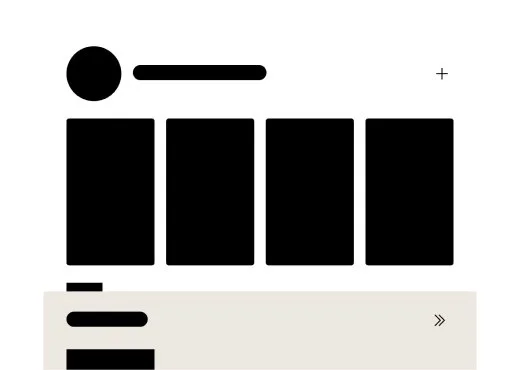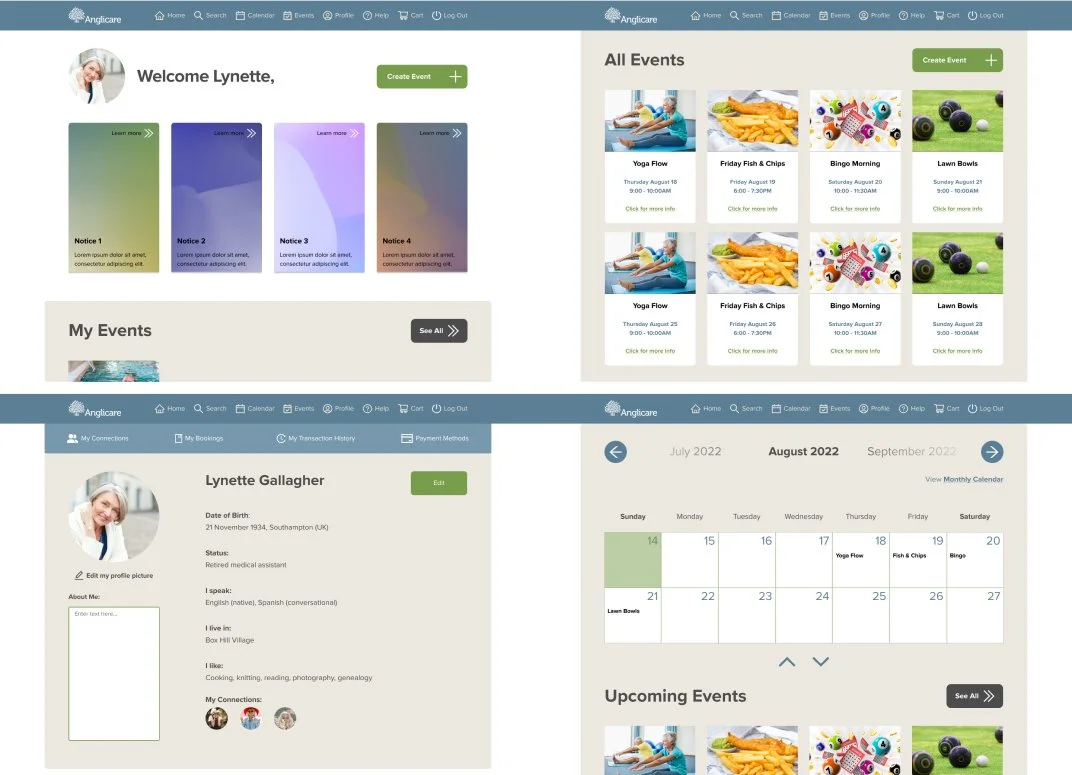
Driving Community Engagement.
The clients of Anglicare Retirement Living (RL) and At Home (AAH), along with their families, are expressing a growing expectation and desire for enhanced access to information and self-service capabilities. They seek a level of convenience and immediacy comparable to the experiences they have with organizations in other industries, such as retail, education, and travel. Specifically, they are seeking greater transparency and real-time access to information, as well as the ability to independently manage their social groups, events, bookings, and services. Additionally, they value receiving timely updates and being able to provide feedback. Currently, there is a need to explore and understand the potential for a customer self-service digital solution within RL and AAH.
Anglicare “my social calendar” is a platform that helps to consolidae the extensive catalogue to social activities across all Anglicare campuses. it is a portal that allows residents to book, attend and connect with residents of similar interests within their own and the wider Anglicare community.
Overview
UI designer, user experience, team lead
My role as the lead was to manage a multi-disciplined team of student designers to champion and conceive a website design and imagine the digital experience of the website for residents of Anglicare across their various locations. I was primarily responsible for managing a team of 5 UX designers, focusing on collaboration and effective communication to align the team to the task and deliver a working checkout prototype within a 6 week timeline consisting of multiple sprints.
Role
Anglicare elderly residents desire the opportunity to have access to information and ability to self-manage their own social groups, events, bookings and services, receive updates and provide feedback. They feel increasingly isolated as they integrate into residential living and want hte option for social interaction through activities but have no existing system to connect with others in similar life stage with similar interests
Problem Statement
Processs
Our approach involved conducting extensive interviews with several Anglicare stakeholders (including 1 Anglicare staff member, 4 current residents and 2 current Anglicare at Home clients), competitor analyses and generating user journeys, personas, user flows and wireframes to distill the information and brainstorm ideas.
Our interviews allowed us to better understand the residents as people and their current struggles with adapting to independent living in a residential aged care community. Some of their perceived struggles to integrating a portal system included the need for technological assistance, the desire for flexible schedules with the classes, their own physical limitations to travelling to and engaging in activities and a reduced budget as a result of living expenses.
*Some key statistics:
1 in 5 older adults experienced loneliness. Loneliness and Social Isolation in Aged Care, Ausmed 2022
Up to 40% of people in residential aged care do not receive any visitors. Ken Wyatt 2017, Minister for Aged Care
Increase in social activity can prevent or reduce depression in elderly residents. Social participation reduced depressive symptoms, BMC public health - Taiwan
Ideation
We conceptualized a booking and checkout system. In our user testing sessions, there was some constructive feedback we were able to gather from participants of a similar demographic. We were unable to engage the residents we conducted the initial interviews with given our limited timeline.
Some comments suggested improving consistency with text size for accessibility and presentation, inclusion of icons with words for improved usability, clear and repetitive details for verification when checking out and keeping as much information on a single page. There was also some positive feedback with comments around the user friendliness of the design, that it had warm feel, is intuitive and easy to use, is colorful and well organised.

